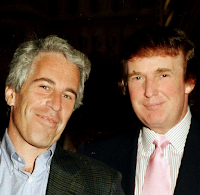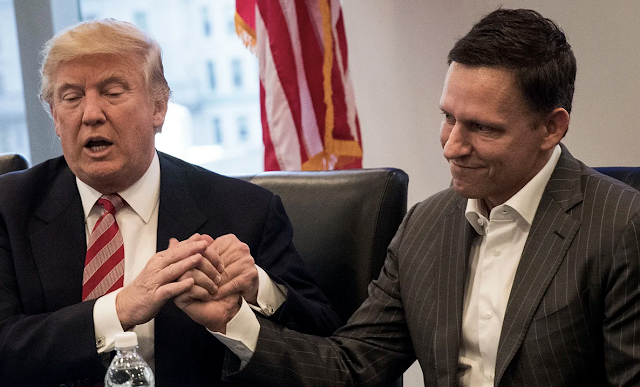The spectre of authoritarianism rarely announces itself with jackboots and torchlight parades. More often, it arrives draped in the rhetoric of economic necessity, promising prosperity whilst systematically dismantling the institutions that protect democratic accountability.
Such is the case with Shane Jones, New Zealand First's Resources Minister, whose latest tirade against regional councils represents a chilling escalation in his campaign to eliminate environmental oversight that stands between his corporate benefactors and unfettered resource extraction.
Jones' inflammatory rhetoric comparing the Otago Regional Council to the "Kremlin of the South Island" and dismissing its qualified staff as "KGB green zealots" would be laughable were it not so dangerously revealing of his authoritarian instincts. His call to "disestablish regional councils" because they dare to apply existing environmental law represents nothing less than an assault on New Zealand's democratic institutions. This is the language of a man who views legitimate democratic processes as obstacles to be eliminated rather than safeguards to be respected.
On Friday, the ODT reported:
Resource Minister Shane Jones has called the Otago Regional Council "the Kremlin of the South Island" after an application to expand the Macraes gold mine ran into trouble.
Mr Jones, who is also the regional development minister, said the council was full of "KGB green zealots" and the episode showed why regional councils needed to be scrapped.
The Otago council’s assessment of environmental effects — which recommended Oceana-Gold’s application to expand its mine be declined in full — was "ideological scribbling".
Any other investor or miner in New Zealand would now quickly conclude they had to join the fast-track application process, "which will enable these economic saboteurs to be marginalised", he said.
The parallels to historical fascism are unmistakable. Like the dictators of the 1930s who railed against "enemies of the people" and "saboteurs," Jones employs inflammatory language to delegitimise any institution that challenges his pro-drill agenda. His dismissal of evidence-based environmental assessments as "ideological scribbling" echoes the fascist contempt for expertise and scientific inquiry that characterised regimes which prioritised ideology over evidence.
When Jones describes regional councillors as "Politburo apparatchiks," he reveals his own authoritarian mindset, anyone who disagrees with his vision for environmental destruction must be part of some sinister conspiracy rather than public servants just doing their legally mandated jobs.
What makes Jones' extremism particularly troubling is the financial corruption that underpins it. The Resources Minister's relationships with mining companies extend far beyond policy alignment into the murky waters of financial influence. Analysis of political donation records reveals a staggering pattern of corporate capture that would make even the most cynical observer blush.
NZ First received at least $121,680 from donors linked to fast-track projects in 2024 alone, with Jones personally benefiting from quarry company J Swap in August 2023, the same company that subsequently donated $11,000 to NZ First and applied for fast-track approval. AJR Finance, connected to quarrying interests, contributed a massive $55,000 to NZ First. These figures represent just the tip of the iceberg in a system where corporate donors are literally buying policy outcomes.
Last year, RNZ reported:
Quarry company J Swap's fast track plea after donations to Shane Jones and NZ First
A NZ First donor wants Fast Track legislation to free up permanently protected land for quarrying.
J Swap, a company involved in quarrying, wants land protected under QEII covenants to be available to quarry. It donated $11,000 to NZ First in December, after the coalition was formed.
It also gave $5000 to NZ First's Shane Jones in August 2023 and $3000 to National's David MacLeod in September 2023.
The proposed Fast Track legislation is touted as a "one-stop shop" for approving infrastructure projects. It would sit over a range of existing acts and regulations and would mean an application would only need to go through one process for approval instead of several consents under the existing system.
Jones' undeclared dinners with mining company representatives, arranged by his own staff, demonstrate a level of impropriety that would have seen ministers resign in shame during more principled eras. That he refuses to answer questions about these meetings whilst simultaneously pushing legislation that directly benefits his dinner companions represents corruption in its most brazen form.
The Minister's attacks on environmental groups further reveal his authoritarian tendencies. His vitriolic campaigns against Greenpeace and the Green Party are not merely political rhetoric but systematic attempts to delegitimise opposition voices. When Jones declares that environmental organisations are "economic saboteurs," he employs the classic fascist tactic of painting political opponents as traitors to the nation. This is the language of autocrats who cannot tolerate dissent.
His promise that fast-track legislation will "enable these economic saboteurs to be marginalised" is perhaps the most revealing statement of all. Here, Jones explicitly acknowledges that his legislative agenda is designed not to improve environmental processes but to eliminate environmental opposition entirely. This is not governance; it is the systematic dismantling of democratic accountability.
The implications extend far beyond mining policy. If Jones succeeds in eliminating regional councils, institutions that employ thousands of professionals and manage critical functions, he will have destroyed a fundamental layer of New Zealand's democratic architecture. These councils don't just assess mining applications; they manage flood protection, biosecurity, civil defence, and public transport. Their elimination would represent the largest centralisation of power in New Zealand's modern history.
Regional councillor Alexa Forbes correctly identified Jones' rhetoric as undermining confidence in both central and local government. When ministers attack the institutions they're supposed to work with, they erode the very foundations of democratic governance. This is precisely how democratic backsliding occurs, not through military coups but through the gradual erosion of institutional safeguards by those entrusted to protect them.
Jones' vision of New Zealand is one where corporate donors write policy, environmental laws are ignored, and democratic institutions are eliminated if they prove inconvenient. His $3 billion mining export target comes with a hidden cost: the transformation of New Zealand into a corporate playground where profit trumps the environment and democracy becomes an obstacle to be overcome.
The tragedy is that this assault on our democratic institutions is being conducted by a minister whose own party received just 6.08% of the vote in 2023. Through the accidents of coalition politics, a fringe politician bankrolled by mining interests now wields the power to reshape New Zealand's governance structures according to his authoritarian vision.
History teaches us that democracy's greatest threats often come not from external enemies but from those within who promise prosperity whilst dismantling the institutions that protect the Kiwi way of life. Shane Jones embodies this threat, and his agenda must be recognised for what it truly is: not economic development but undemocratic destruction, funded by corporate interests and executed through authoritarian rhetoric that would make history's dictators proud.




















